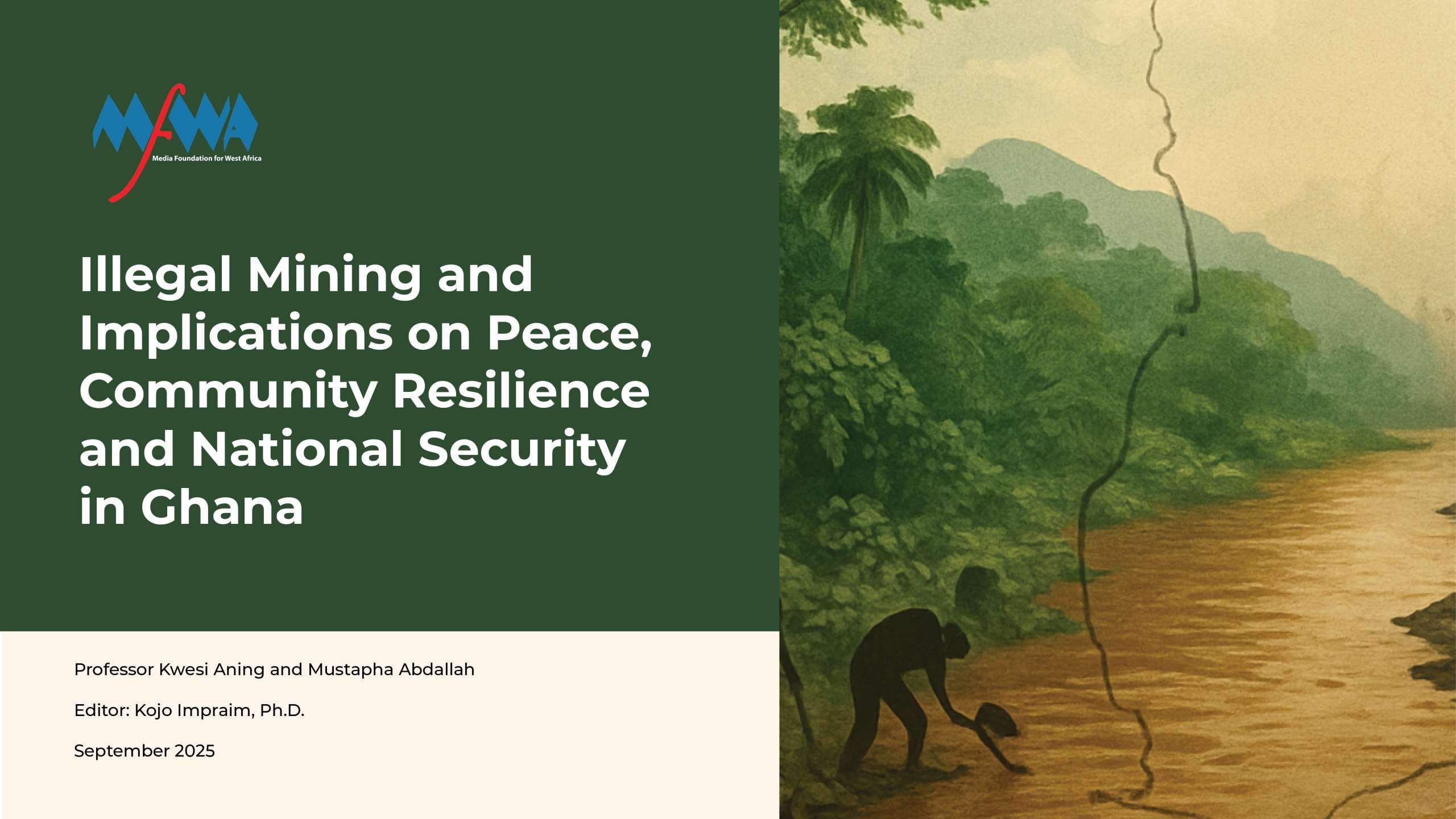Ghana’s democracy has gradually shifted into deep political polarisation, especially between the two dominant parties—the NDC and NPP. This has fuelled a “winner-takes-all” governance culture, entrenched patronage systems, and policy paralysis on critical national issues. One of the most pressing victims of this paralysis is the fight against illegal small-scale mining, commonly known as galamsey.
Despite numerous laws and repeated government interventions, illegal mining continues to devastate the environment, pollute water bodies, degrade farmlands, and threaten livelihoods and food security. The situation is further complicated by the political influence of individuals who finance both mining and major political parties, making decisive action both sensitive and costly.
To respond to this crisis, the Media Foundation for West Africa (MFWA), in partnership with the National Peace Council (NPC), National Commission for Civic Education (NCCE), and other key state, traditional, and religious institutions, is implementing the project: “Breaking the Gridlock: Resolving Polarisation-Induced Policy Paralysis in Ghana.” A major component of this initiative is the High-Level National Dialogue on Mobilising Citizens’ Consensus on Solutions to the Galamsey Crisis, scheduled for 28–29 October 2025.
As part of the dialogue preparations, five expert research papers were commissioned to provide evidence-based analysis and inform discussions. These papers focus on the impacts of illegal mining on the environment, water resources, agriculture, health, forest reserves, and peace and security.
About this report
This report aims to contextualise illegal ASGM within Ghana’s broader socio-political and security framework. In doing so, it seeks to provide an analysis of the threats posed by galamsey, its connections to organised crime, and the multidimensional power dynamics that sustain it. Ultimately, the goal is to propose actionable, consensus-driven policy options that address the evolving challenge of illegal mining while fostering peace, community resilience, and national security. The report adopts a qualitative research approach to data collection and analysis. It focuses on desk review of academic literature, policy briefs, and media and other investigative reports.
The Report is structured into six sections. Section 1 reviews existing literature with the view to highlighting existing gaps. This is an important approach to lay the foundations for the subsequent arguments. Subsequently, the succeeding sections are discussed along themes emerging from the literature review and the gaps identified. To this end, the second section examines and discusses threats and insecurities created by this activity and within illegal mining sites, while the third section focuses on organised criminal networks and their related illicit activities. In section four, the Report highlights what it perceives as the emerging secretive power dynamics and regulatory capture; a state of affairs that Kwadwo Appiagyei-Atua (2024) characterises as the development of a ‘galamstate’, while section five examines the implications on peace, resilience and national security, reflecting on Galtung’s theoretical perspectives of positive and negative peace. The final section offers practical steps for coordinated national response and concluding remarks.
Download the report here.






